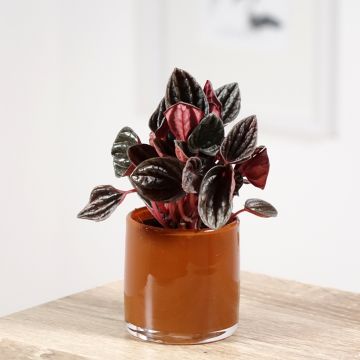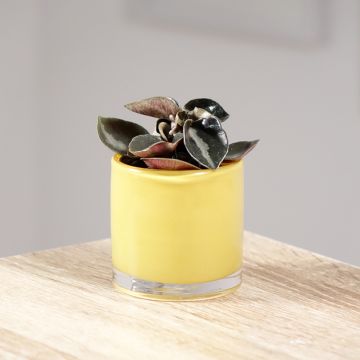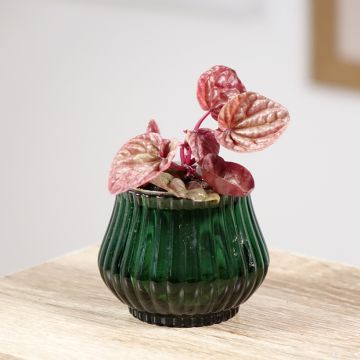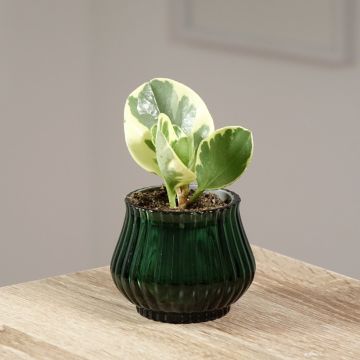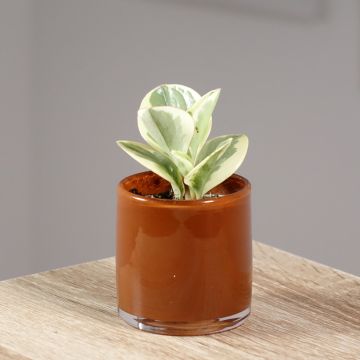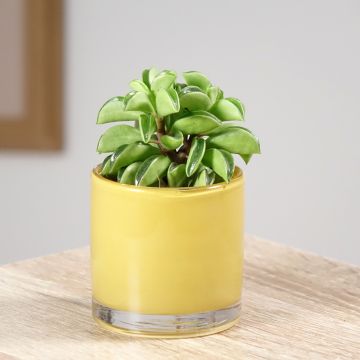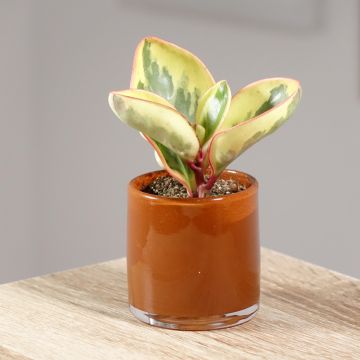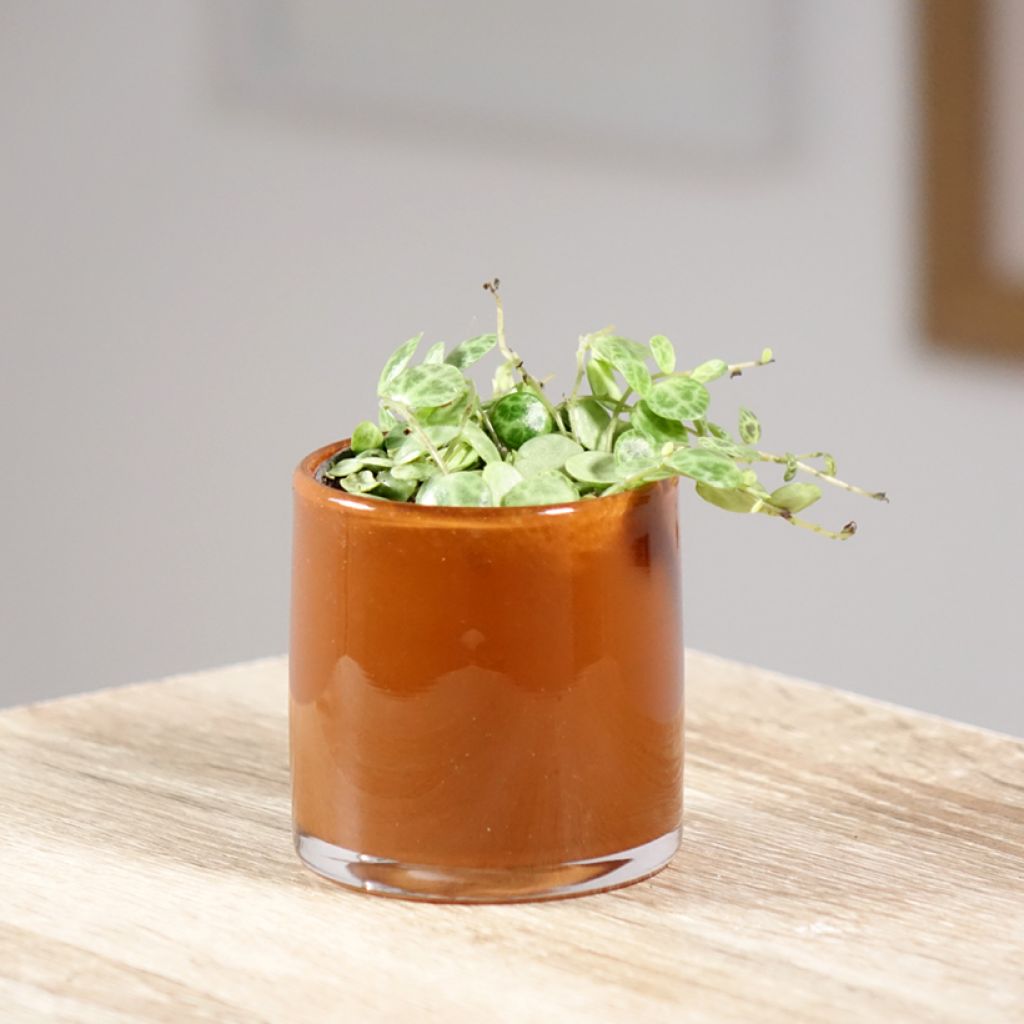

Peperomia prostrata - String of turtles
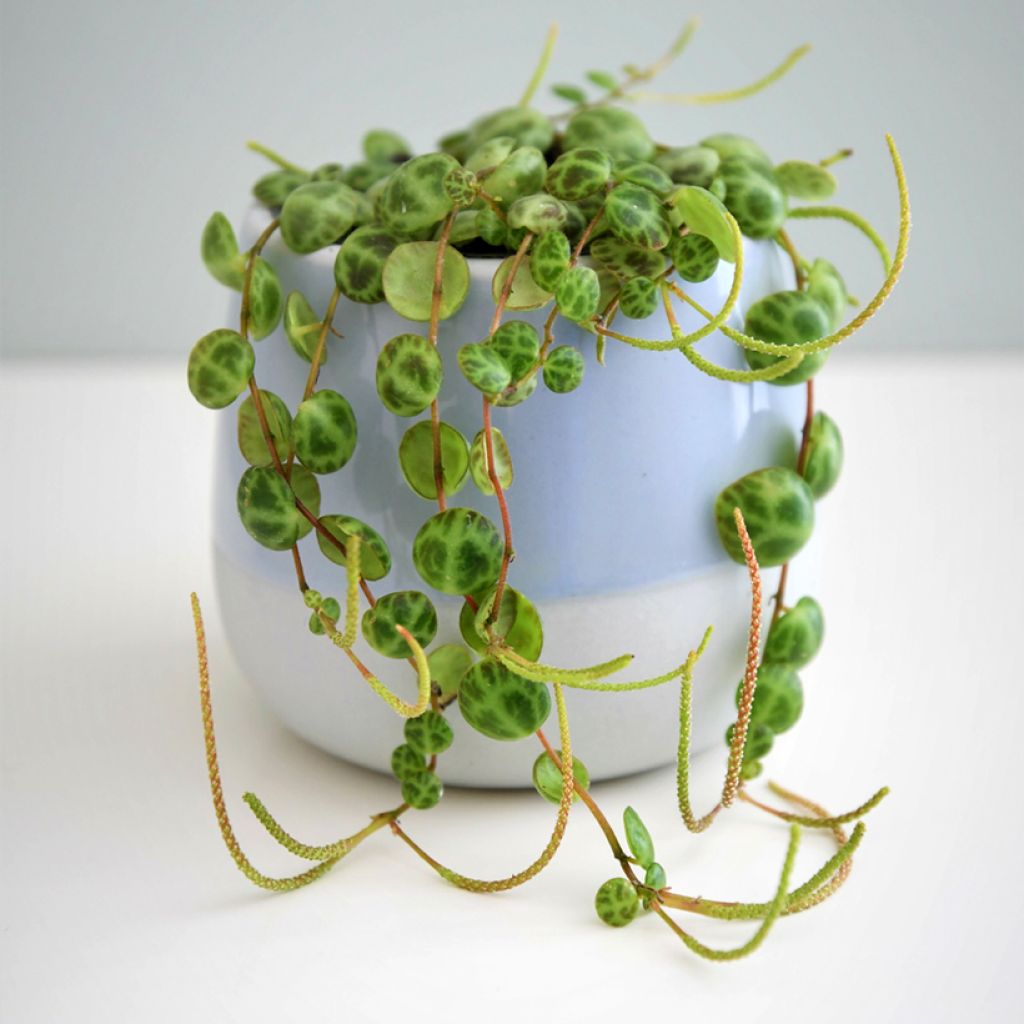

Peperomia prostrata - String of turtles
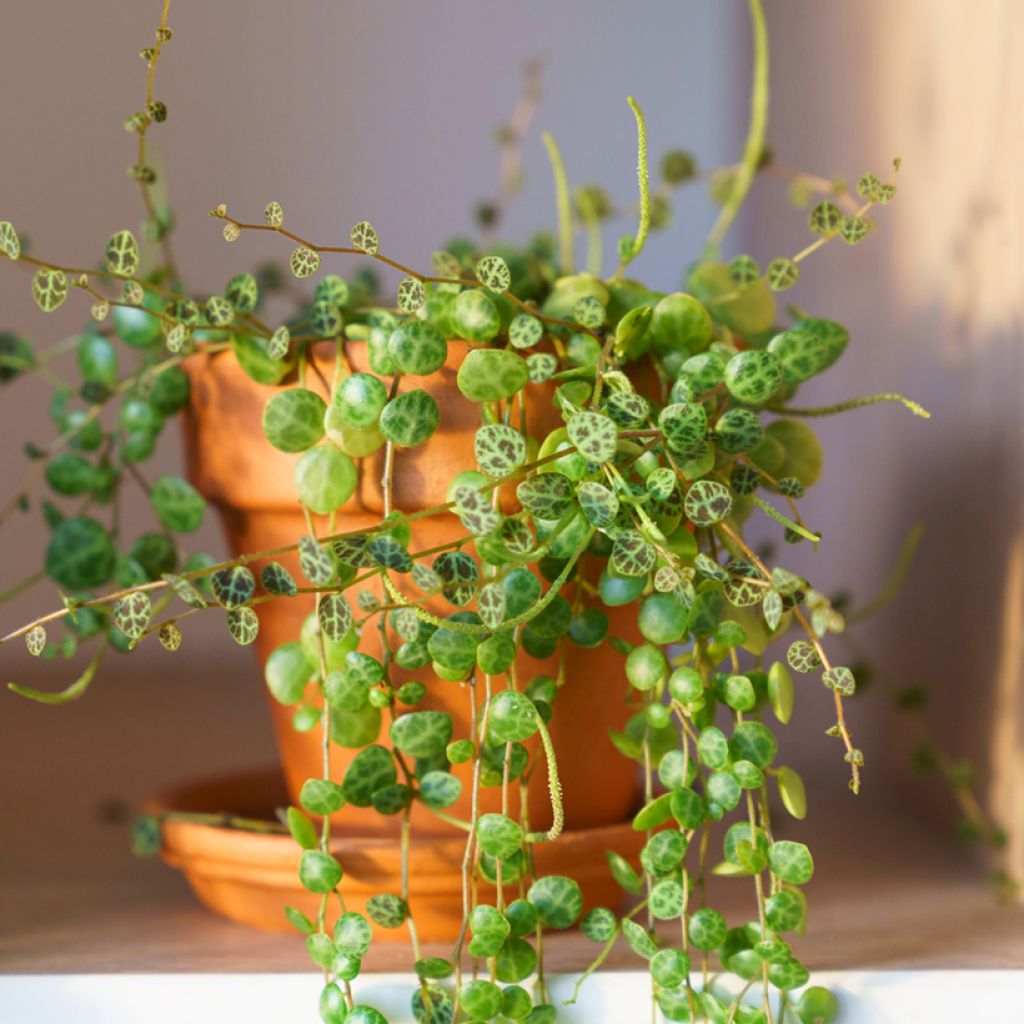

Peperomia prostrata - String of turtles
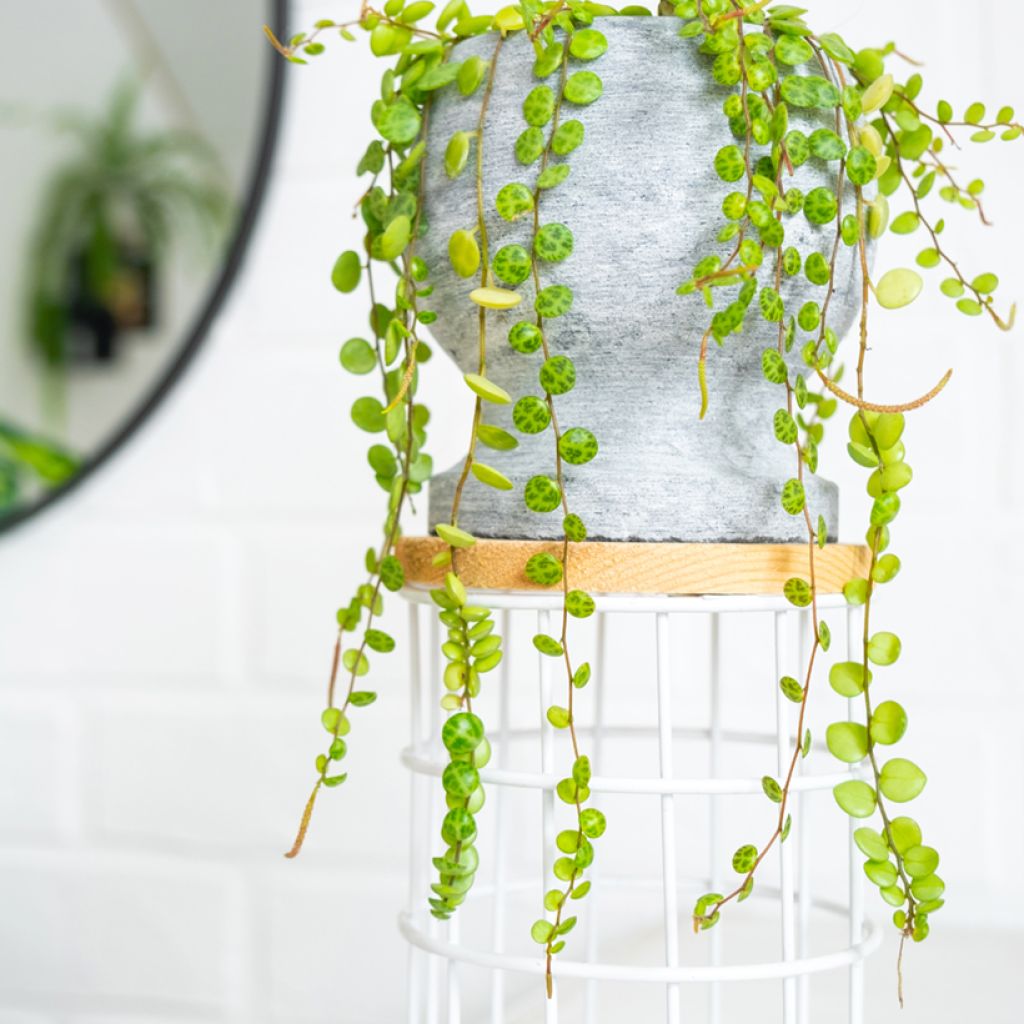

Peperomia prostrata - String of turtles
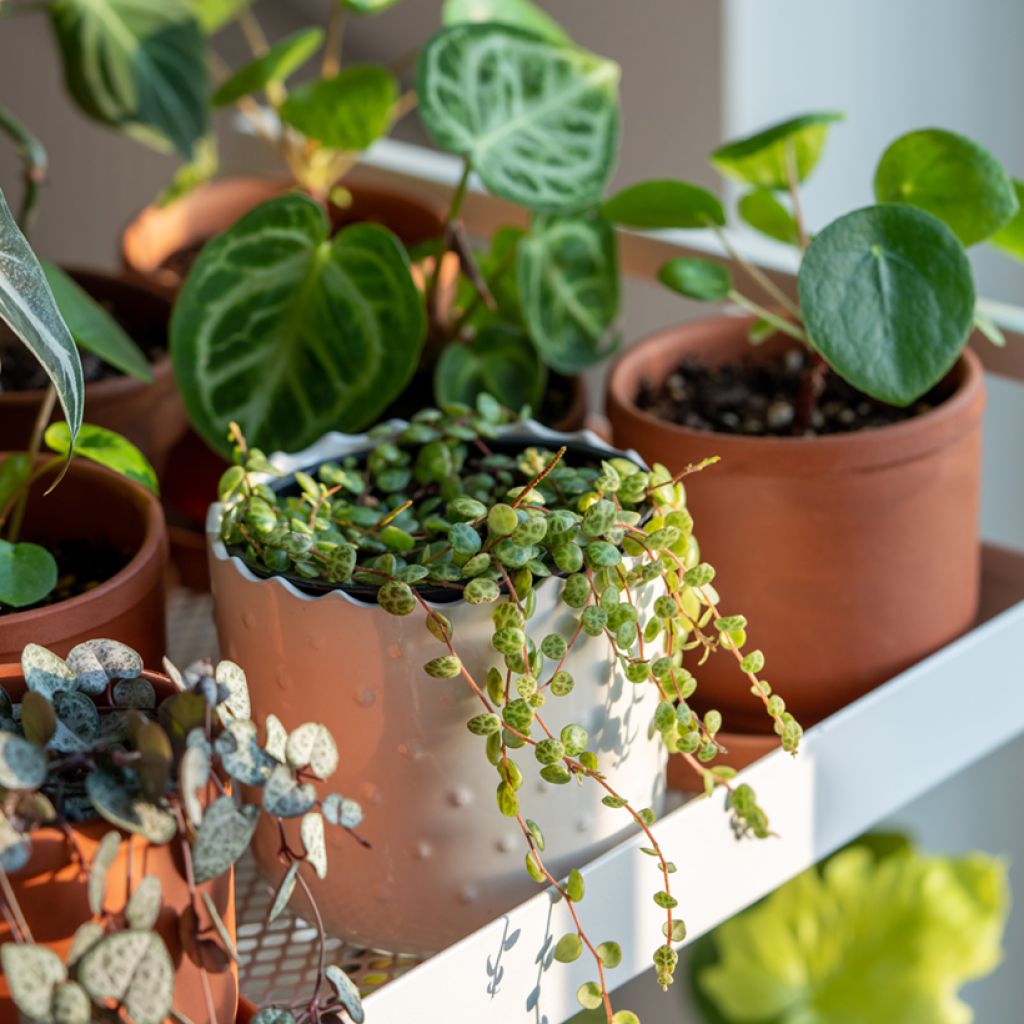

Peperomia prostrata - String of turtles
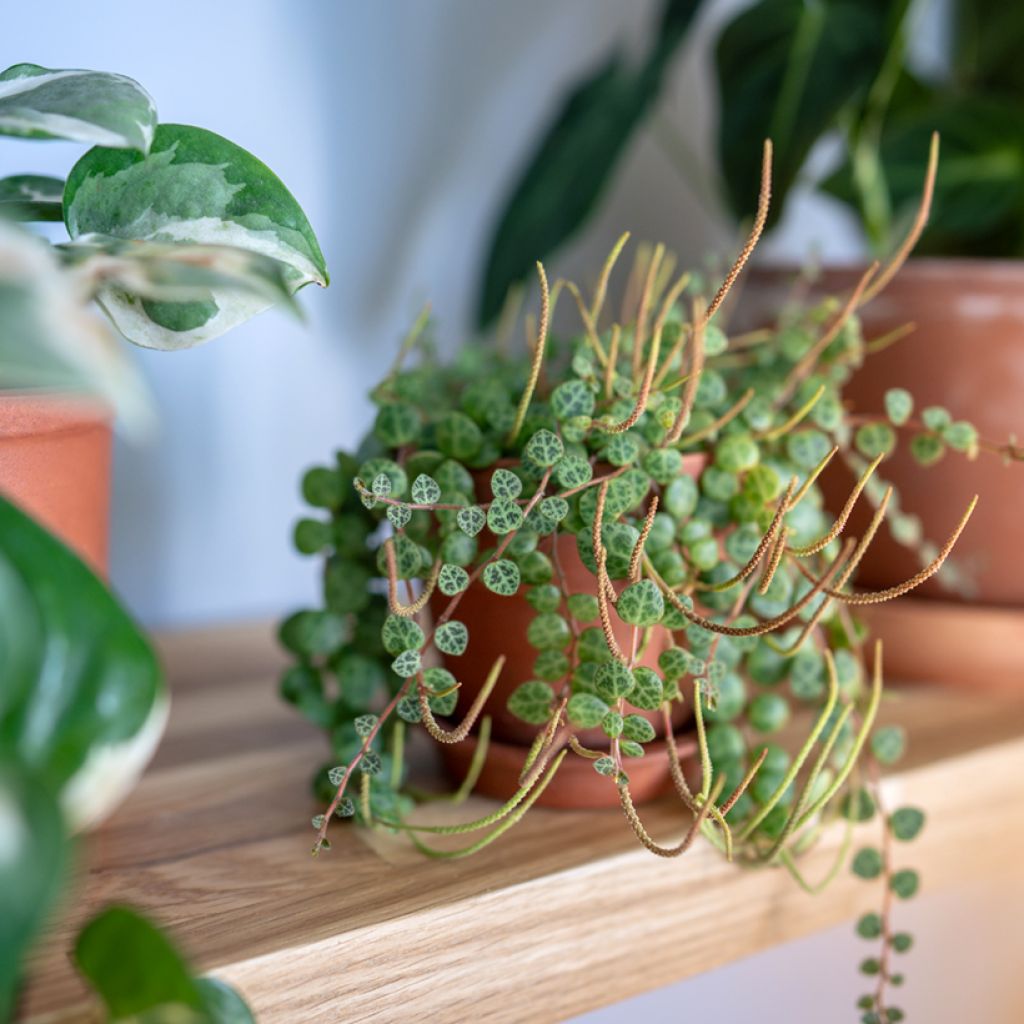

Peperomia prostrata - String of turtles
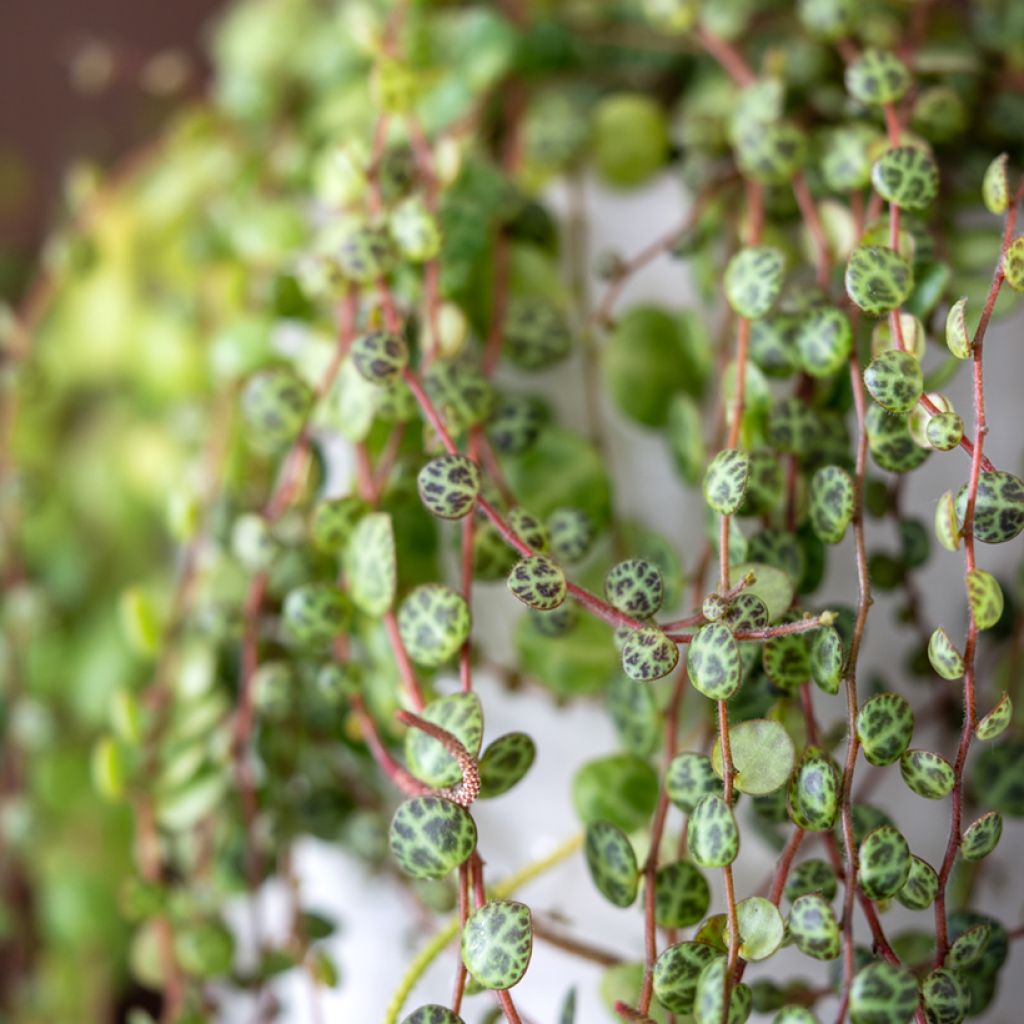

Peperomia prostrata - String of turtles
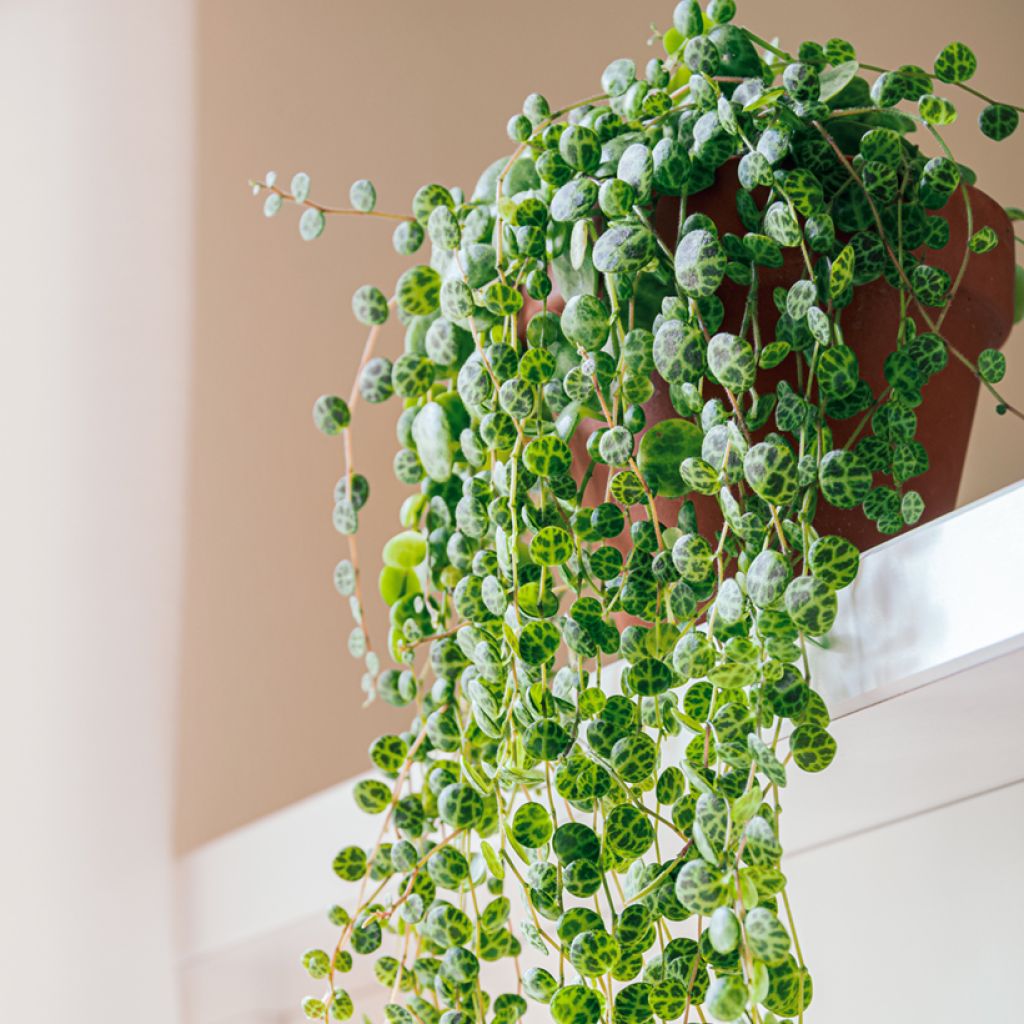

Peperomia prostrata - String of turtles
Peperomia prostrata - String of turtles
Peperomia prostrata
String of turtles
Special offer!
Receive a €20 voucher for any order over €90 (excluding delivery costs, credit notes, and plastic-free options)!
1- Add your favorite plants to your cart.
2- Once you have reached €90, confirm your order (you can even choose the delivery date!).
3- As soon as your order is shipped, you will receive an email containing your voucher code, valid for 3 months (90 days).
Your voucher is unique and can only be used once, for any order with a minimum value of €20, excluding delivery costs.
Can be combined with other current offers, non-divisible and non-refundable.
Home or relay delivery (depending on size and destination)
Schedule delivery date,
and select date in basket
This plant carries a 30 days recovery warranty
More information
We guarantee the quality of our plants for a full growing cycle, and will replace at our expense any plant that fails to recover under normal climatic and planting conditions.
Description
Affectionately nicknamed the String of Turtles, the Peperomia prostrata is a beloved houseplant prized for its delicate foliage and attractive trailing habit. Its small, rounded leaves adorned with patterns reminiscent of turtle shells give it a unique personality. Easy to care for and undemanding, this plant is also suitable for beginners. Peperomias prefer to be left alone: minimal watering, very limited misting, and moderate to bright light without direct sunlight. They are more susceptible to root rot from overwatering than from occasional drought.
The Peperomia prostrata or Creeping Peperomia belongs to the Piperaceae botanical family. The Peperomia prostrata is native to the humid forests of Ecuador where it grows as an epiphyte, clinging to tree trunks in shady, moist environments. This perennial develops slender, graceful stems that elegantly trail, making it an excellent choice for hanging baskets or shelves. Its growth is relatively slow. Due to its strong trailing habit, this plant reaches a height of 2 to 10 cm but its stems can grow up to 30 cm long. The leaves of the Peperomia prostrata are small, round, about 1 to 1.5 cm in diameter, and have a slightly fleshy texture. They display a deep green colour adorned with silvery or whitish patterns along the veins, resembling the scaly shell of a turtle. Discreet flowering may occur at various times of the year. The flowers are small and grouped in elongated spikes. Good news for pet owners and parents: the plant is non-toxic to humans and pets.
The Peperomia genus includes over 1,000 species primarily native to tropical and subtropical regions of Central and South America. The name 'Peperomia' is derived from the Greek words 'Peperi' (pepper) and 'homoios' (resembling). This etymology highlights the plant's connection to the Piperaceae family which also includes black pepper (Piper nigrum).
The Peperomia prostrata is a charming plant that fits perfectly into a modern or bohemian décor. Pair it with other plants with similar needs such as the Philodendron 'Brasil' with its heart-shaped, bright green and yellow foliage, or a Rhipsalis (mistletoe cactus), with its succulent, trailing stems.
Report an error about the product description
Peperomia prostrata - String of turtles in pictures
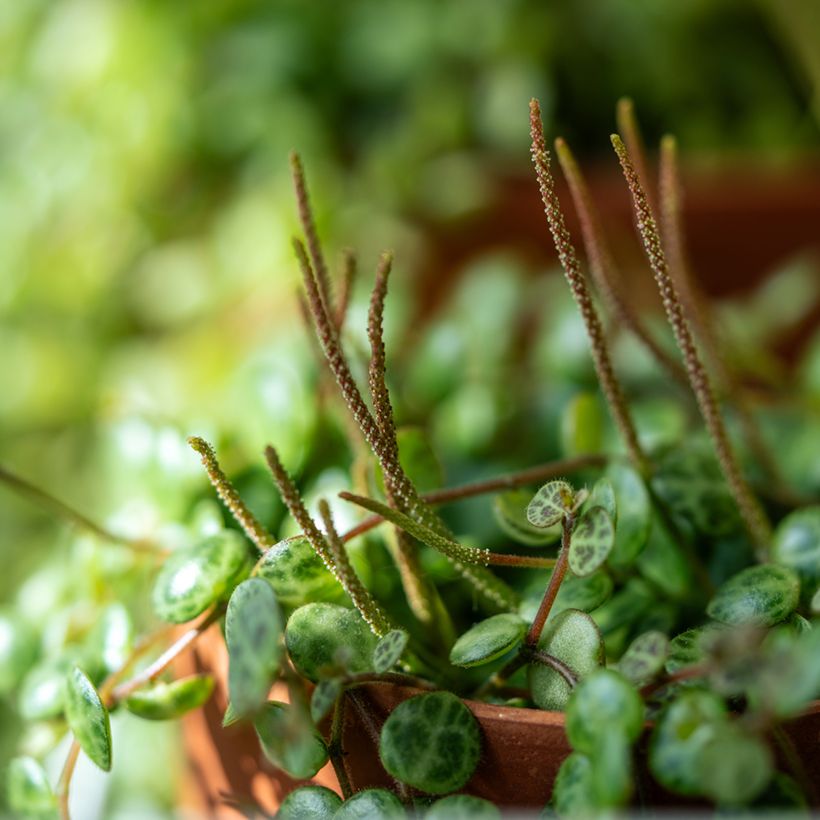

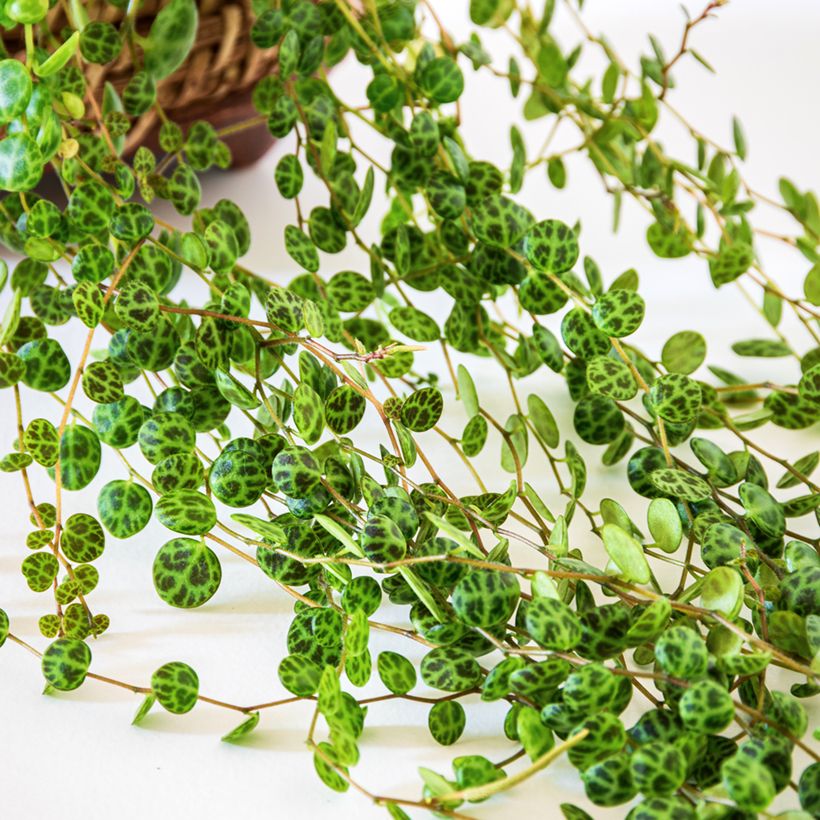

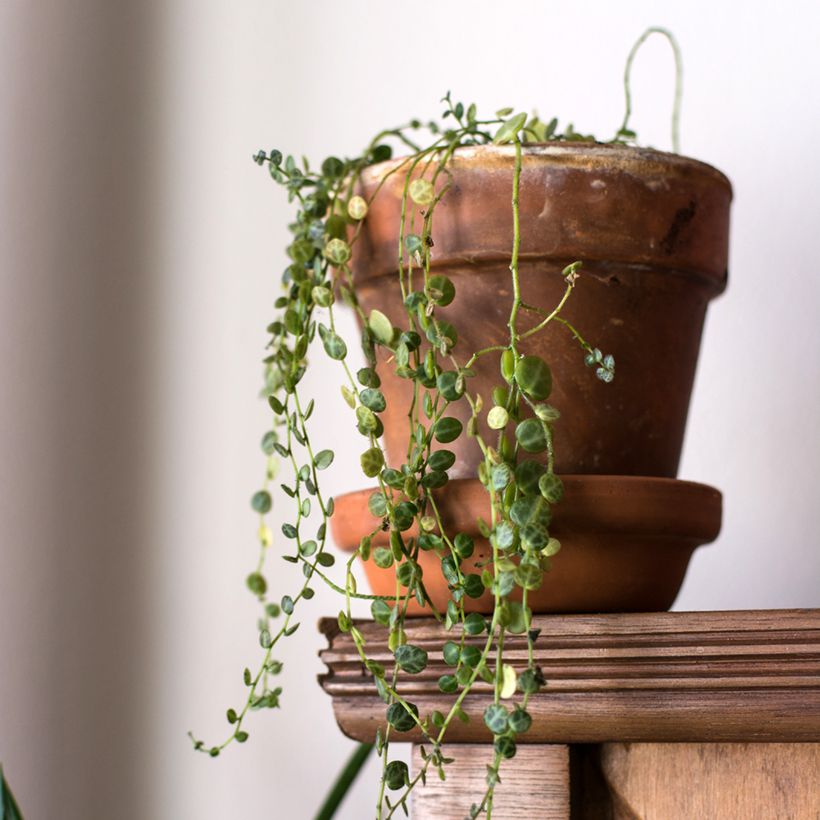

Foliage
Plant habit
Botanical data
Peperomia
prostrata
Piperaceae
String of turtles
South America
Other Peperomia - Radiator plants
View all →Location
Location
Maintenance and care
Watering tips
Potting advice, substrates and fertilisers
Houseplant care
Disease and pest advice
Maintenance and care
This item has not been reviewed yet - be the first to leave a review about it.
Haven't found what you were looking for?
Hardiness is the lowest winter temperature a plant can endure without suffering serious damage or even dying. However, hardiness is affected by location (a sheltered area, such as a patio), protection (winter cover) and soil type (hardiness is improved by well-drained soil).

Photo Sharing Terms & Conditions
In order to encourage gardeners to interact and share their experiences, Promesse de fleurs offers various media enabling content to be uploaded onto its Site - in particular via the ‘Photo sharing’ module.
The User agrees to refrain from:
- Posting any content that is illegal, prejudicial, insulting, racist, inciteful to hatred, revisionist, contrary to public decency, that infringes on privacy or on the privacy rights of third parties, in particular the publicity rights of persons and goods, intellectual property rights, or the right to privacy.
- Submitting content on behalf of a third party;
- Impersonate the identity of a third party and/or publish any personal information about a third party;
In general, the User undertakes to refrain from any unethical behaviour.
All Content (in particular text, comments, files, images, photos, videos, creative works, etc.), which may be subject to property or intellectual property rights, image or other private rights, shall remain the property of the User, subject to the limited rights granted by the terms of the licence granted by Promesse de fleurs as stated below. Users are at liberty to publish or not to publish such Content on the Site, notably via the ‘Photo Sharing’ facility, and accept that this Content shall be made public and freely accessible, notably on the Internet.
Users further acknowledge, undertake to have ,and guarantee that they hold all necessary rights and permissions to publish such material on the Site, in particular with regard to the legislation in force pertaining to any privacy, property, intellectual property, image, or contractual rights, or rights of any other nature. By publishing such Content on the Site, Users acknowledge accepting full liability as publishers of the Content within the meaning of the law, and grant Promesse de fleurs, free of charge, an inclusive, worldwide licence for the said Content for the entire duration of its publication, including all reproduction, representation, up/downloading, displaying, performing, transmission, and storage rights.
Users also grant permission for their name to be linked to the Content and accept that this link may not always be made available.
By engaging in posting material, Users consent to their Content becoming automatically accessible on the Internet, in particular on other sites and/or blogs and/or web pages of the Promesse de fleurs site, including in particular social pages and the Promesse de fleurs catalogue.
Users may secure the removal of entrusted content free of charge by issuing a simple request via our contact form.
The flowering period indicated on our website applies to countries and regions located in USDA zone 8 (France, the United Kingdom, Ireland, the Netherlands, etc.)
It will vary according to where you live:
- In zones 9 to 10 (Italy, Spain, Greece, etc.), flowering will occur about 2 to 4 weeks earlier.
- In zones 6 to 7 (Germany, Poland, Slovenia, and lower mountainous regions), flowering will be delayed by 2 to 3 weeks.
- In zone 5 (Central Europe, Scandinavia), blooming will be delayed by 3 to 5 weeks.
In temperate climates, pruning of spring-flowering shrubs (forsythia, spireas, etc.) should be done just after flowering.
Pruning of summer-flowering shrubs (Indian Lilac, Perovskia, etc.) can be done in winter or spring.
In cold regions as well as with frost-sensitive plants, avoid pruning too early when severe frosts may still occur.
The planting period indicated on our website applies to countries and regions located in USDA zone 8 (France, United Kingdom, Ireland, Netherlands).
It will vary according to where you live:
- In Mediterranean zones (Marseille, Madrid, Milan, etc.), autumn and winter are the best planting periods.
- In continental zones (Strasbourg, Munich, Vienna, etc.), delay planting by 2 to 3 weeks in spring and bring it forward by 2 to 4 weeks in autumn.
- In mountainous regions (the Alps, Pyrenees, Carpathians, etc.), it is best to plant in late spring (May-June) or late summer (August-September).
The harvesting period indicated on our website applies to countries and regions in USDA zone 8 (France, England, Ireland, the Netherlands).
In colder areas (Scandinavia, Poland, Austria...) fruit and vegetable harvests are likely to be delayed by 3-4 weeks.
In warmer areas (Italy, Spain, Greece, etc.), harvesting will probably take place earlier, depending on weather conditions.
The sowing periods indicated on our website apply to countries and regions within USDA Zone 8 (France, UK, Ireland, Netherlands).
In colder areas (Scandinavia, Poland, Austria...), delay any outdoor sowing by 3-4 weeks, or sow under glass.
In warmer climes (Italy, Spain, Greece, etc.), bring outdoor sowing forward by a few weeks.






























